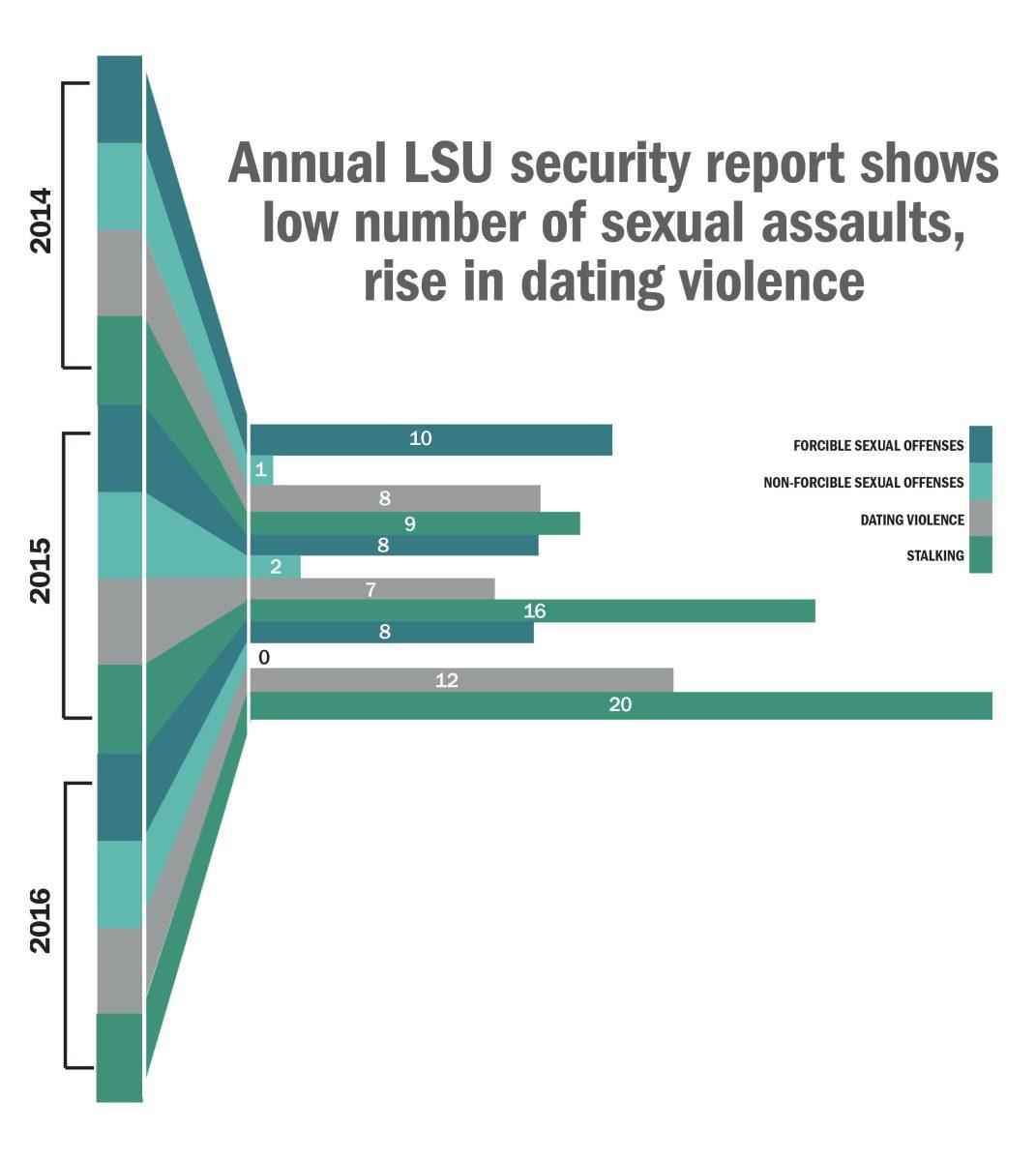According to the 2017 Security & Fire Report, the University continued to see a decline in the number of reported sex offenses.
The University provides crime statistics each year in accordance with the Clery Act, a federal statute which requires all universities who receive federal financial aid to disclose information about crimes on or near their campuses.
In 2016, the University received eight reported incidents of forcible sex offenses, the same as in 2015 but fewer than the 10 reported in 2014. The University reported no instances of non-forcible sex offenses, down from two in 2015 and one in 2014.
Assistant Director of Wellness & Health Promotion for the Student Health Center Susan Bareis said The Lighthouse Program has seen an increase in students seeking help with sexual or interpersonal violence.
“I think it’s related to students being more aware of the Lighthouse Program,” Bareis said. “We’re with Student Government in their commitment to making students aware of the resources we have on campus.”
The Lighthouse Program is a confidential reporting option for students looking for support on campus. The program assists students who are survivors of sexual assault, domestic violence, relationship violence and stalking.
According to the Safety Report, the University has seen a substantial increase in the number of reported cases of domestic violence, dating violence and stalking. In 2016, the University received 20 reported instances of stalking, more than double the incidents reported in 2014 and slightly more than the 16 reported in 2015. Bareis says Lighthouse sees a number of students for these issues.
“I know a lot of times there is a focus on sexual assault but we do work with students for all kinds of interpersonal violence,” Bareis said. “The Lighthouse Program has certainly seen more students seeking services for dating violence and stalking as well.”
The University also reported an increase of dating violence offenses, but a lowered number of on-campus domestic violence cases.
Bareis said no student using the services provided by The Lighthouse Program is required to report to LSUPD or the University, but they do provide some anonymous information to LSUPD.
“The Clery Act mandates that we submit the anonymous information we receive — things like whether it occurred on or off campus, whether it was a partner an acquaintance or a stranger,” Bareis said. “When a student comes in for services I tell them about their reporting options, but ultimately we want to help them regain power and control. We let them make the choices of whether to report.”
According to the Rape, Abuse & Incest National Network, the largest anti-sexual violence organization in the United States, women ages 18-24 are three times as likely to experience sexual violence. RAINN also reported 11.2 percent of all students experience rape or sexual assault and 4.2 percent experience stalking after entering college.
Compared to other Southeastern Conference schools, the University received a low number of sex offenses. In 2016, LSU reported the fourth lowest number of sex offenses. The University of Alabama and the University of Florida both reported 21 cases of rape, while Texas A&M reported 30 cases.
“Sexual violence impacts us all directly or indirectly,” Bareis said. “I always tell students that you might not be personally the victim or the survivor of some type of sexual violence, but I guarantee you probably know a friend or family member that could utilize services.”








